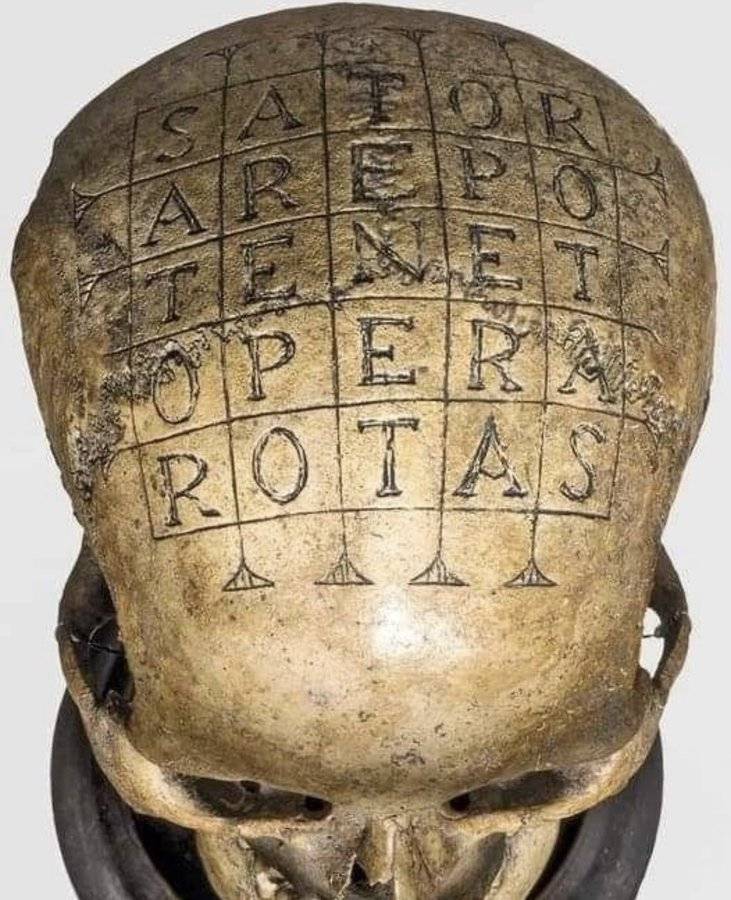The Oath Skull from Germany is a human skull from the 16th or 17th century that features the Sator formula inscribed within a letter square.
The significance and purpose of the Sator formula remain unclear, leading to various interpretations over the years.
One proposed interpretation involves arranging the letters in a double Pater Noster (the Lord's Prayer) in the shape of a cross around the pivotal letter "N," while the remaining letters "A" and "O" represent alpha and omega, symbolizing the beginning and the end.
This arrangement suggests a connection between the skull and religious symbolism.
The Sator Square, on the skull, the square has long associations with magical powers throughout its history, including a perceived ability to extinguish fires, particularly in Germany. The square appears in several early and late medieval medical textbooks such as the Trotula, and was employed as a medieval cure for many ailments.
The Sator square is arranged as a 5 × 5 grid consisting of five 5-letter words, thus totaling 25 characters. It uses 8 different Latin letters: 5 consonants (S, T, R, P, N) and 3 vowels (A, E, O).
The Sator formula, inscribed on the Oath Skull, is not just a simple palindrome that reads the same forwards and backward, but it’s also a two-dimensional palindrome. This means that it can be read top-to-bottom, bottom-to-top, left-to-right, and right-to-left. This unique characteristic has led to its use in various forms of magic and ritualistic practices throughout history.
The Oath Skull was used in the Vehmic courts of Westphalia, a region in Northwest Germany. These courts were known for their secrecy and had the power to carry out executions. Defendants were made to swear on a holy relic, often a skull like the one shown here. The inscriptions on these skulls were engravings of mystical letters, adding another layer of intrigue to the story of the Oath Skull.
Interestingly, the Sator Square has been found across Europe, Asia Minor, and North Africa. It has long associations with magical powers throughout its history, including a perceived ability to extinguish fires, particularly in Germany. The square appears in several early and late medieval medical textbooks such as the Trotula, and was employed as a medieval cure for many ailments, particularly for dog bites and rabies, as well as for insanity, and for relief during childbirth.




No comments yet
Be the first to share your thoughts!